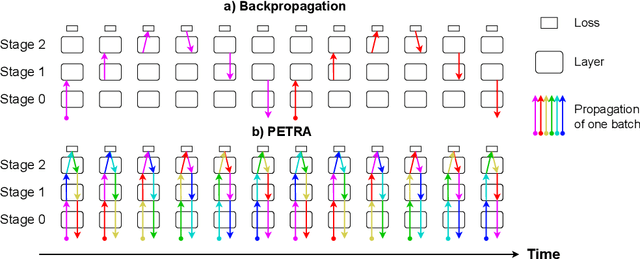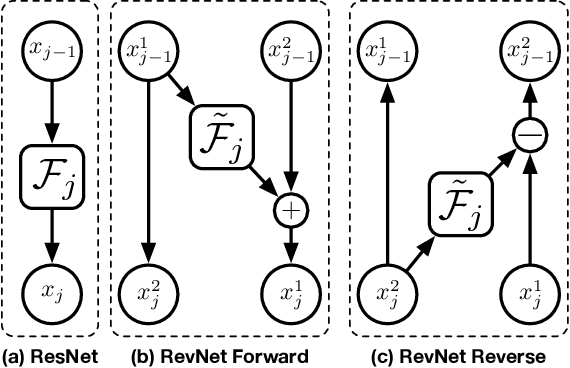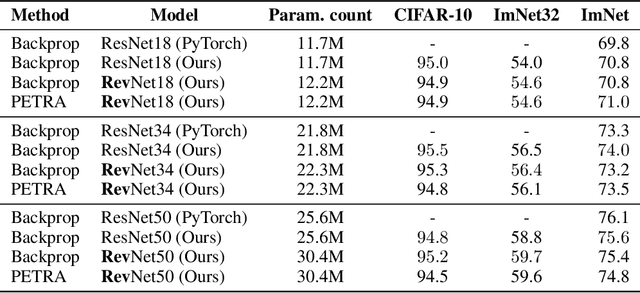Stéphane Rivaud
MLIA
PETRA: Parallel End-to-end Training with Reversible Architectures
Jun 04, 2024



Abstract:Reversible architectures have been shown to be capable of performing on par with their non-reversible architectures, being applied in deep learning for memory savings and generative modeling. In this work, we show how reversible architectures can solve challenges in parallelizing deep model training. We introduce PETRA, a novel alternative to backpropagation for parallelizing gradient computations. PETRA facilitates effective model parallelism by enabling stages (i.e., a set of layers) to compute independently on different devices, while only needing to communicate activations and gradients between each other. By decoupling the forward and backward passes and keeping a single updated version of the parameters, the need for weight stashing is also removed. We develop a custom autograd-like training framework for PETRA, and we demonstrate its effectiveness on CIFAR-10, ImageNet32, and ImageNet, achieving competitive accuracies comparable to backpropagation using ResNet-18, ResNet-34, and ResNet-50 models.
Can Forward Gradient Match Backpropagation?
Jun 12, 2023Abstract:Forward Gradients - the idea of using directional derivatives in forward differentiation mode - have recently been shown to be utilizable for neural network training while avoiding problems generally associated with backpropagation gradient computation, such as locking and memorization requirements. The cost is the requirement to guess the step direction, which is hard in high dimensions. While current solutions rely on weighted averages over isotropic guess vector distributions, we propose to strongly bias our gradient guesses in directions that are much more promising, such as feedback obtained from small, local auxiliary networks. For a standard computer vision neural network, we conduct a rigorous study systematically covering a variety of combinations of gradient targets and gradient guesses, including those previously presented in the literature. We find that using gradients obtained from a local loss as a candidate direction drastically improves on random noise in Forward Gradient methods.
 Add to Chrome
Add to Chrome Add to Firefox
Add to Firefox Add to Edge
Add to Edge